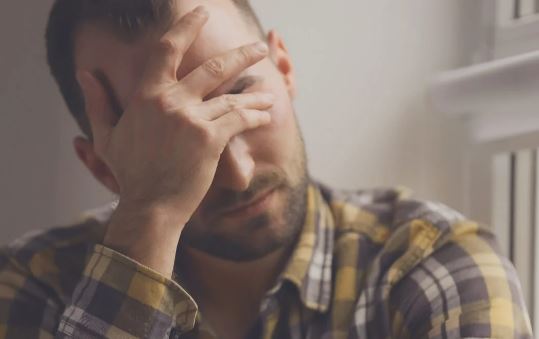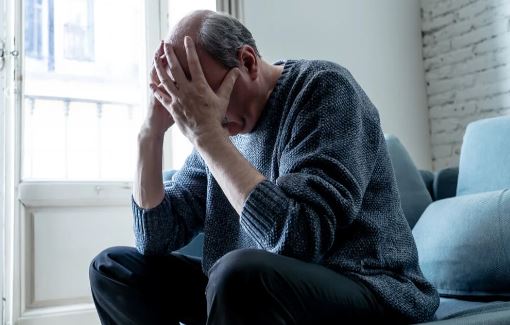Chronic depression, also known as dysthymia, often goes deeper among people with the pathology, perhaps because of its less disabling quality. In other words, sufferers appear to function normally in their daily activities and show no too obvious signs.

According to James Morrison: “Dysthymics suffer in silence and their disability can be subtle: they tend to invest much of their energy at work and neglect the social aspects of life.” However, it is important to know that this disorder exists and that it affects the quality of life of patients.
What is chronic depression?
Chronic depression has been called in several ways: dysthymia, dysthymic disorder, and persistent depressive disorder. The most characteristic symptom is a sad mood that is present most of the time. It is also associated with feelings of ineptitude, irritability, loss of interest, and social withdrawal, among others.
Dysthymia has more widespread durability than major depressive episodes and symptoms develop less intensely. These must be present for at least two years in adults and one year in adolescents and children to establish the diagnosis. In addition, they should not disappear for a period of longer than two months.
In these cases, patients often report that they have always been depressed. Most commonly, this condition should begin in childhood or adolescence. Although cases with a late-onset have been found, the onset of which takes place after the age of 21.
People with dysthymia usually develop a milder disability than cases of major depressive disorder. That is, they are able to continue their lives without treatment until symptoms intensify. Which can lead to a major depressive episode, which is easier to diagnose.

Chronic depression goes on over time and affects many aspects of everyday life.
How does chronic depression affect people?
Different areas of life are affected by chronic depression. Both the emotional and physical suffer the consequences. This also translates to the social level, into relationships with others. Let us take a closer look at what these manifestations are to the detriment of the quality of life.
In the emotional realm
Patients with chronic depression have a depressed mood almost every day. In children and adolescents, in particular, it is more common for them to express irritability most of the time. In adulthood, there are often feelings of hopelessness, under the premise that problems have no solution.
Low self-esteem is also recorded. They have a poor concept of themselves. They think, for example, that they are useless. In the long run, this leads to poor personal care, by descanso.
In cognition
These people have concentration failures and difficulty in making decisions. In cases of children and adolescents, comparability with attention deficit hyperactivity disorder is common.
The pessimistic view of the world and constant negative thoughts encompass the whole of existence. Some people don’t realize they’re depressed. They recognize that they feel tired, that they have difficulty concentrating, that they have low self-esteem and that they have feelings of hopelessness, but are not aware that they suffer from depression.
On a physical level
On a physical level, chronic depression comes with the following symptoms:
Low energy or tiredness: this interferes with productivity and the ability to perform everyday tasks.
- Insomnia or hypersomnia: The person has difficulty falling asleep or, on the contrary, sleeps excessively.
- Enuresis: in children, with involuntary loss of urine at night.
- Changes in appetite: the person experiences little appetite or can overeat.
In the social sphere
These people appear to be some social stability, however, the little energy they have is reversed by work, thus neglecting other aspects of life, such as sharing with family and friends or doing entertainment activities.
Discomfort in the person affects work or school performance and there is a deterioration in social relationships. Despite spending more time on non-relational activities, the other area also doesn’t get enough attention.

Depression affects social relationships and that makes therapeutic approach difficult
Treatments for chronic depression
Psychotherapy and drug treatment are effective tools to combat chronic depression. Especially when the two combine.
There are a variety of psychological therapies that treat this condition, getting positive results. These include cognitive behavioral therapy, psychoanalysis, family, and group therapy. Each has its own particular characteristics. None of them are better than another. The important thing is that the patient is comfortable with the assistance they are receiving.
Pharmacological treatment, on the other hand, helps modify brain chemistry, which contributes to improving mood. The choice of drugs should be made considering the particular symptoms of the patient and the side effects it may generate.
Chronic depression can be addressed
Chronic depression is not the end of quality of life. A variety of resources are currently available to address the disorder. However, it is essential that the person wants to receive care and that the social support network is available to accompany the process.





